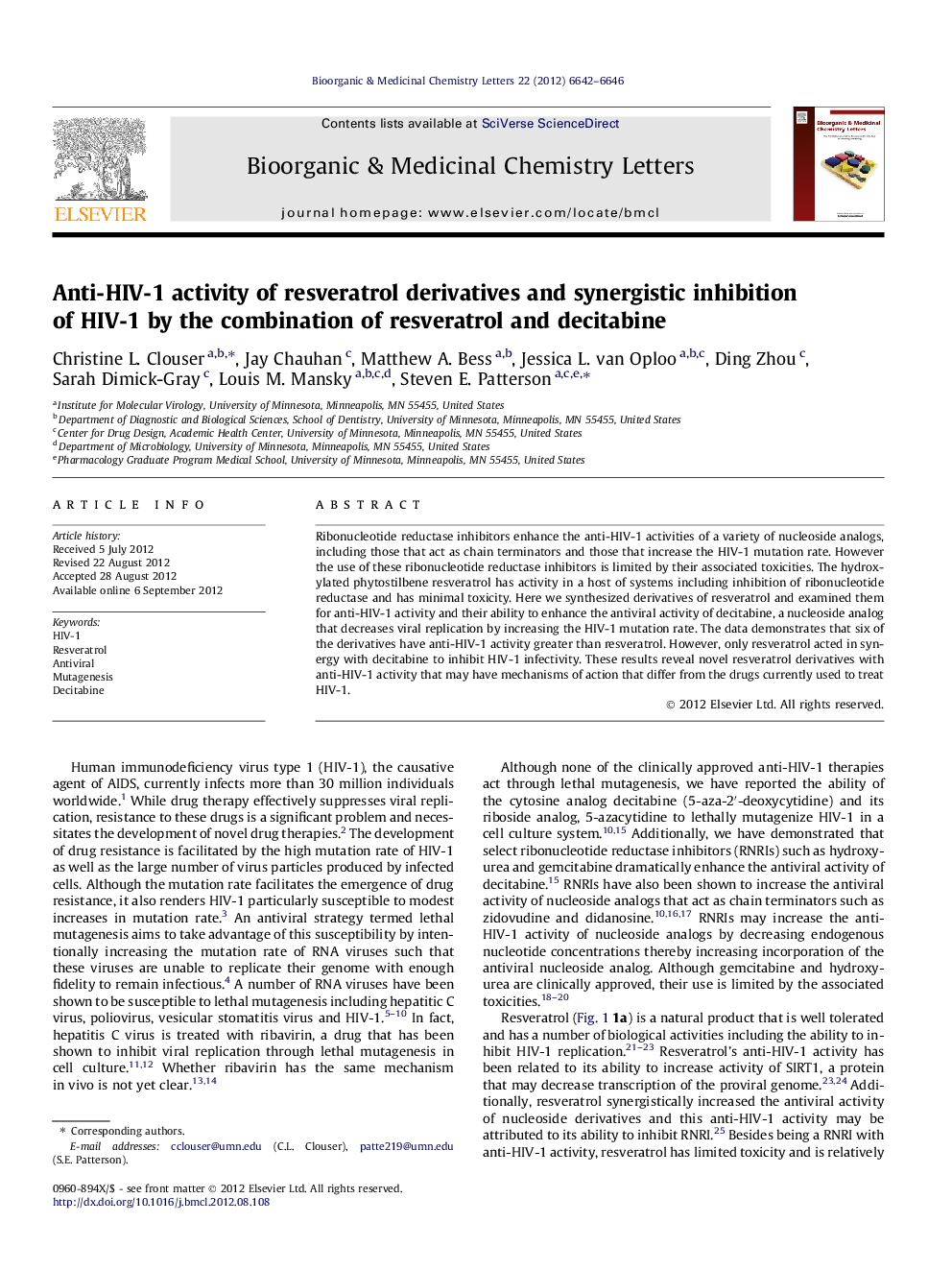| Article ID | Journal | Published Year | Pages | File Type |
|---|---|---|---|---|
| 10593457 | Bioorganic & Medicinal Chemistry Letters | 2012 | 5 Pages |
Abstract
Ribonucleotide reductase inhibitors enhance the anti-HIV-1 activities of a variety of nucleoside analogs, including those that act as chain terminators and those that increase the HIV-1 mutation rate. However the use of these ribonucleotide reductase inhibitors is limited by their associated toxicities. The hydroxylated phytostilbene resveratrol has activity in a host of systems including inhibition of ribonucleotide reductase and has minimal toxicity. Here we synthesized derivatives of resveratrol and examined them for anti-HIV-1 activity and their ability to enhance the antiviral activity of decitabine, a nucleoside analog that decreases viral replication by increasing the HIV-1 mutation rate. The data demonstrates that six of the derivatives have anti-HIV-1 activity greater than resveratrol. However, only resveratrol acted in synergy with decitabine to inhibit HIV-1 infectivity. These results reveal novel resveratrol derivatives with anti-HIV-1 activity that may have mechanisms of action that differ from the drugs currently used to treat HIV-1.
Related Topics
Physical Sciences and Engineering
Chemistry
Organic Chemistry
Authors
Christine L. Clouser, Jay Chauhan, Matthew A. Bess, Jessica L. van Oploo, Ding Zhou, Sarah Dimick-Gray, Louis M. Mansky, Steven E. Patterson,
